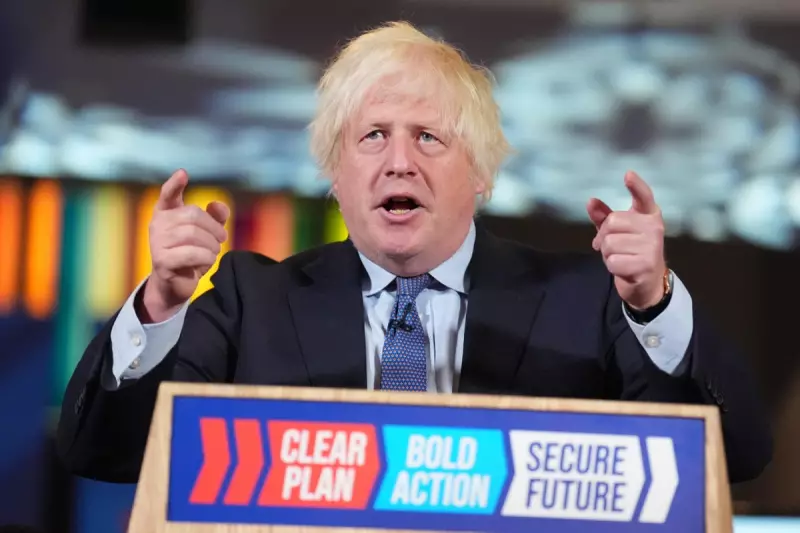
In a stunning political revelation that has sent shockwaves through Westminster, former Prime Minister Boris Johnson's administration secretly explored an extraordinary migration agreement with Nigel Farage's Reform UK party during the final months of his government.
The Backroom Negotiations That Shook British Politics
According to explosive documents obtained by The Independent, senior Conservative figures engaged in clandestine discussions with Reform UK representatives about forming a "non-aggression pact" on immigration policy. The proposed deal would have seen both parties align their migration strategies ahead of the looming general election.
The negotiations, which took place during the turbulent "Boriswave" period of Johnson's leadership, reveal the extraordinary lengths to which the government was willing to go to address the migration crisis and secure political advantage.
Farage's Influence and Johnson's Dilemma
Nigel Farage, the veteran Brexit campaigner and Reform UK honorary president, emerged as a pivotal figure in these discussions. His influence over migration policy debates and his ability to sway public opinion made him an unlikely but potentially valuable ally for the embattled Conservative government.
Sources close to the negotiations suggest that Johnson's team recognised Farage's continuing political clout, particularly on issues of border control and immigration, which were becoming increasingly central to the national conversation.
The Proposed Agreement: What Was on the Table?
The secret pact under discussion included several key elements:
- Coordinated messaging on migration and border control policies
- Agreement to avoid direct criticism of each other's immigration positions
- Potential electoral cooperation in key constituencies
- Shared policy development on asylum and illegal migration
This unprecedented potential collaboration between the governing Conservatives and the insurgent Reform UK party would have represented a significant realignment in British politics.
Why the Deal Ultimately Collapsed
Despite intensive discussions, the proposed agreement never materialised. Several factors contributed to its collapse:
- Internal Conservative resistance: Many Tory MPs expressed deep reservations about aligning with Farage's party
- Policy differences: Despite surface-level agreement on migration, significant ideological gaps remained
- Leadership instability: Johnson's deteriorating political position made long-term agreements untenable
- Timing pressures: The approaching election created urgency but also limited negotiation time
The Aftermath and Political Fallout
The revelation of these secret talks raises profound questions about the nature of political deal-making in modern Britain. It demonstrates how migration has become the central battleground in UK politics, capable of forcing unlikely alliances and reshaping traditional party boundaries.
Political analysts suggest that these failed negotiations may have long-term consequences for both parties, potentially influencing their strategies in future elections and their approach to the ever-contentious issue of immigration.
The disclosure also sheds new light on the complex relationship between the Conservative establishment and the populist right, revealing the ongoing tension between mainstream politics and insurgent movements in post-Brexit Britain.





